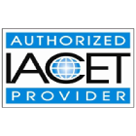Frontline Manager
Frontline Manager: Introduction to Supervision
Frontline Manager: Introduction to Supervision
Regular price
$933 USD
Regular price
Sale price
$933 USD
Unit price
per
Couldn't load pickup availability
Step into the world of management, Hogwarts-style! Get the Marauder's Map to navigate supervisory challenges, wield the Elder Wand of decision-making, and foster a team spirit even Dumbledore would be proud of. Welcome aboard the Hogwarts Express of leadership!
Course Duration:6 hours
Credits:
CEU Credits: 0.3
AMA PCM CEU Credits: 0
PDU Credits: 0
HRCI Credits: 0
SHRM Credits: 3
CFRE Credits: 0
ATD CI Credits: 3
ACE Credits: 0
Course Description
This course, aimed at aspiring supervisors and companies that want to improve their employees' supervisory skills, is designed to help a worker make the transition from individual contributor to a supervisor who oversees the work of others. Self-paced and highly interactive, the course details the fundamental nature of a supervisor's role and the basic management principles that apply to it. It also provides a close look at seven skills that are essential to any supervisor's success: managing time and priorities; communicating; organizing the work and setting goals; managing relationships; resolving conflict; guiding the work; and managing performance. Learners will also have a chance to assess their own supervisory skills and get practical tips on dealing with upper management.
Learning Outcomes
Outline the stages in the supervisory transition process.
Explain the five roles that a supervisor must perform.
Distinguish between and among different organizational structures, explaining how the supervisor's role fits within each.
Define "span of control" and discuss the different factors that may broaden or narrow a supervisor's span of control.
Explain the importance of emotional intelligence for those in a supervisory position.
Discuss the seven most important supervisory skills.
Discuss different strategies for managing time and priorities.
Describe ways to improve your active-listening skills and explain the importance of active listening in the communication process.
Define SMART goals and explain how they improve the goal-setting process.
Assess the relative importance of different interpersonal skills in the context of relationship management.
Discuss the stages of conflict and explain how a supervisor can most effectively address conflict in the workplace.
Discuss the role of both formal and informal feedback in a performance-management system.
Identify key strategies for "managing up."
Testimonials



